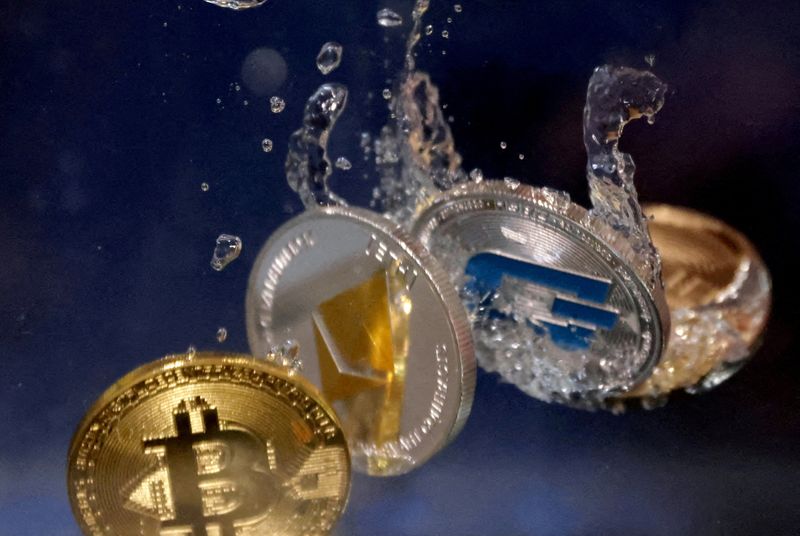FRANKFURT (Reuters) – Germany’s top regulator this week called for global regulation of the cryptocurrency industry to protect consumers, prevent money laundering and preserve financial stability.
Mark Branson, the president of Germany’s financial market regulator BaFin, said a hands-off approach that would “just let the industry grow as a playground for grownups” was the wrong tactic.
“We’ve seen the self-regulated world. It will not work,” Branson told journalists in Frankfurt on Tuesday evening.
Branson was speaking hours after U.S. prosecutors accused Sam Bankman-Fried, founder of cryptocurrency exchange FTX, of misappropriating billions of dollars and violating campaign laws in what has been described as potentially one of America’s biggest financial frauds.
Branson said a “crypto spring” may follow what has been a “crypto winter” but that the industry that emerges is likely to have more links with traditional finance, further increasing the need for regulation.
“Now is the time for serious cryptocurrency regulation,” he said.
“The most important point is that it doesn’t need just a European solution. It needs a worldwide solution.”
Regulation of the industry has been loose and patchwork.
Germany requires licences for banks to deal with cryptocurrency.
The European Union has been working on a new Markets in Crypto Assets Regulation (MiCA) that some, including European Central Bank President Christine Lagarde, say would need to be broadened out in a future iteration and branded “MiCA 2”.
Branson has sounded sceptical about the sector in the past. Last month he said in an interview on the ECB’s website that “not all crypto business models are serious”.
“Waves of innovation, as we know, also bring with them freeloaders and crooks,” he said.
(Reporting by Tom Sims and Frank Siebelt; Editing by Mark Potter)
